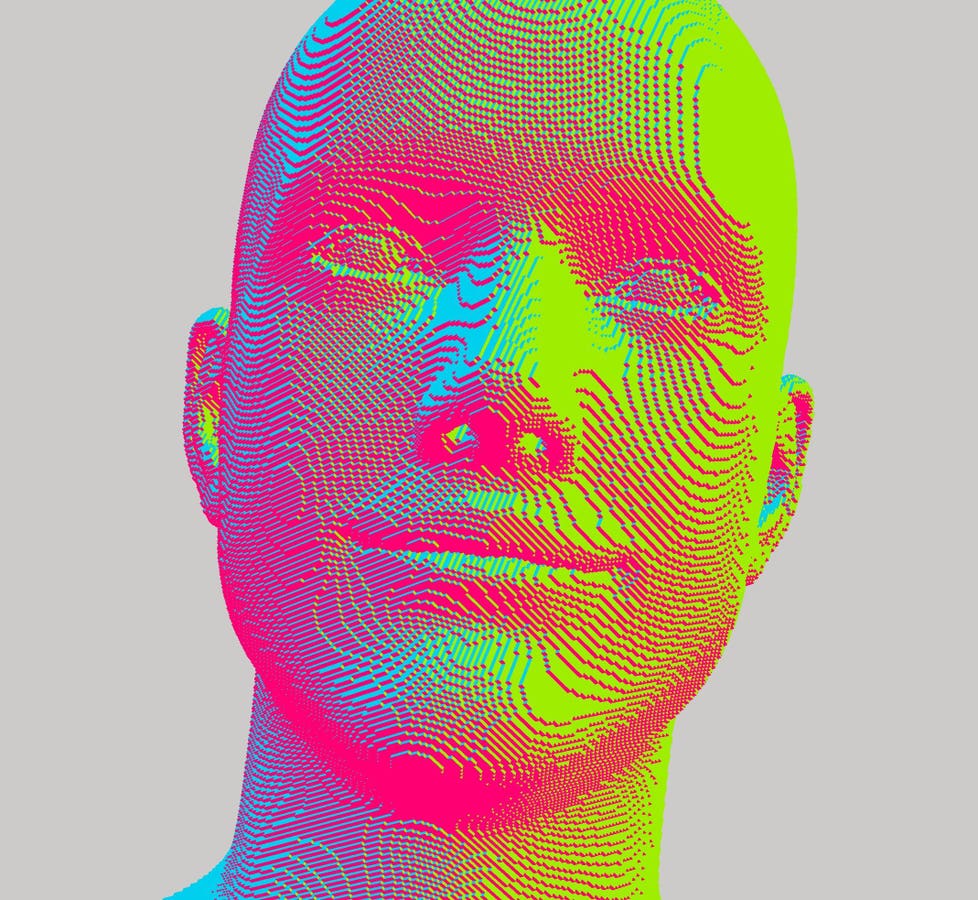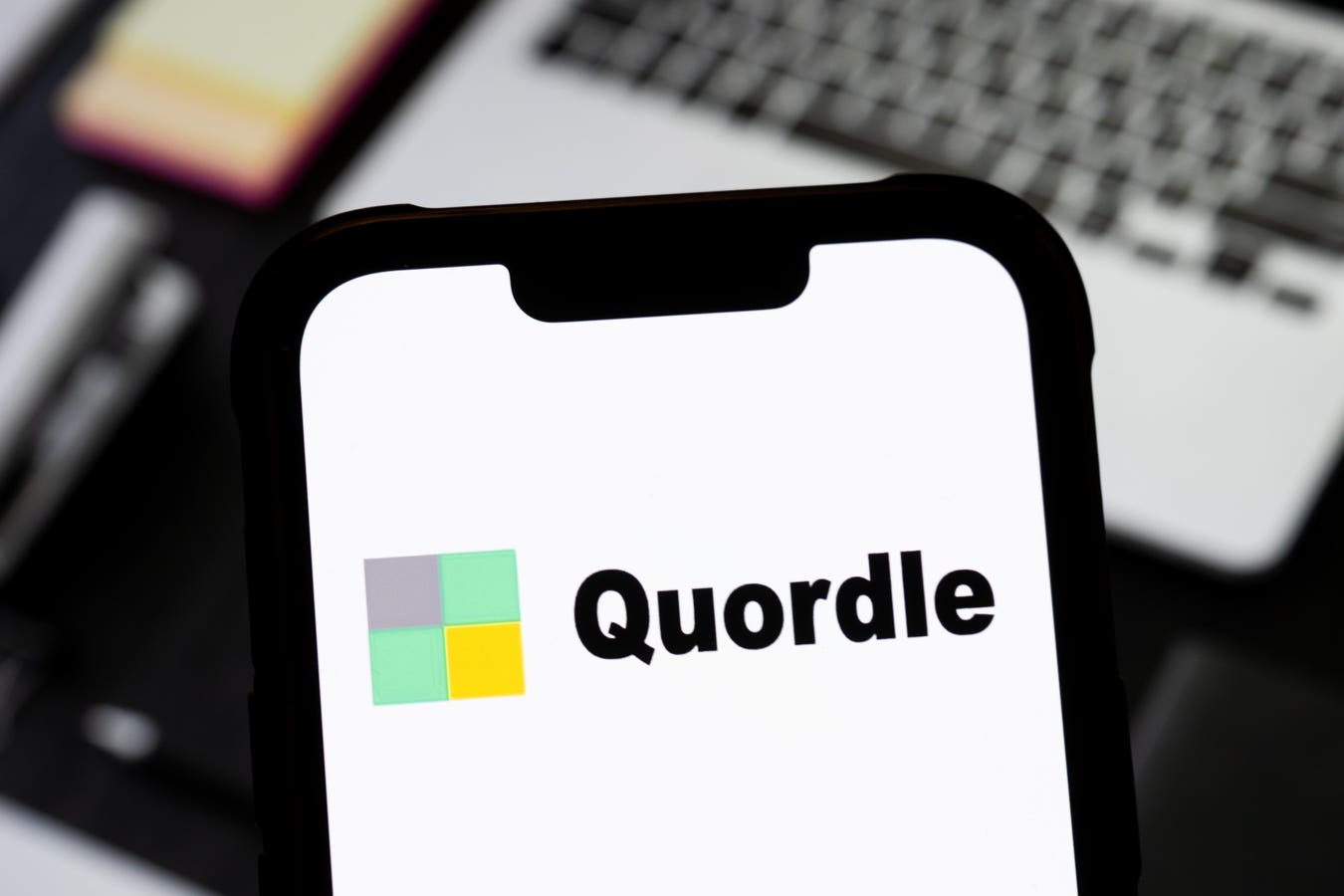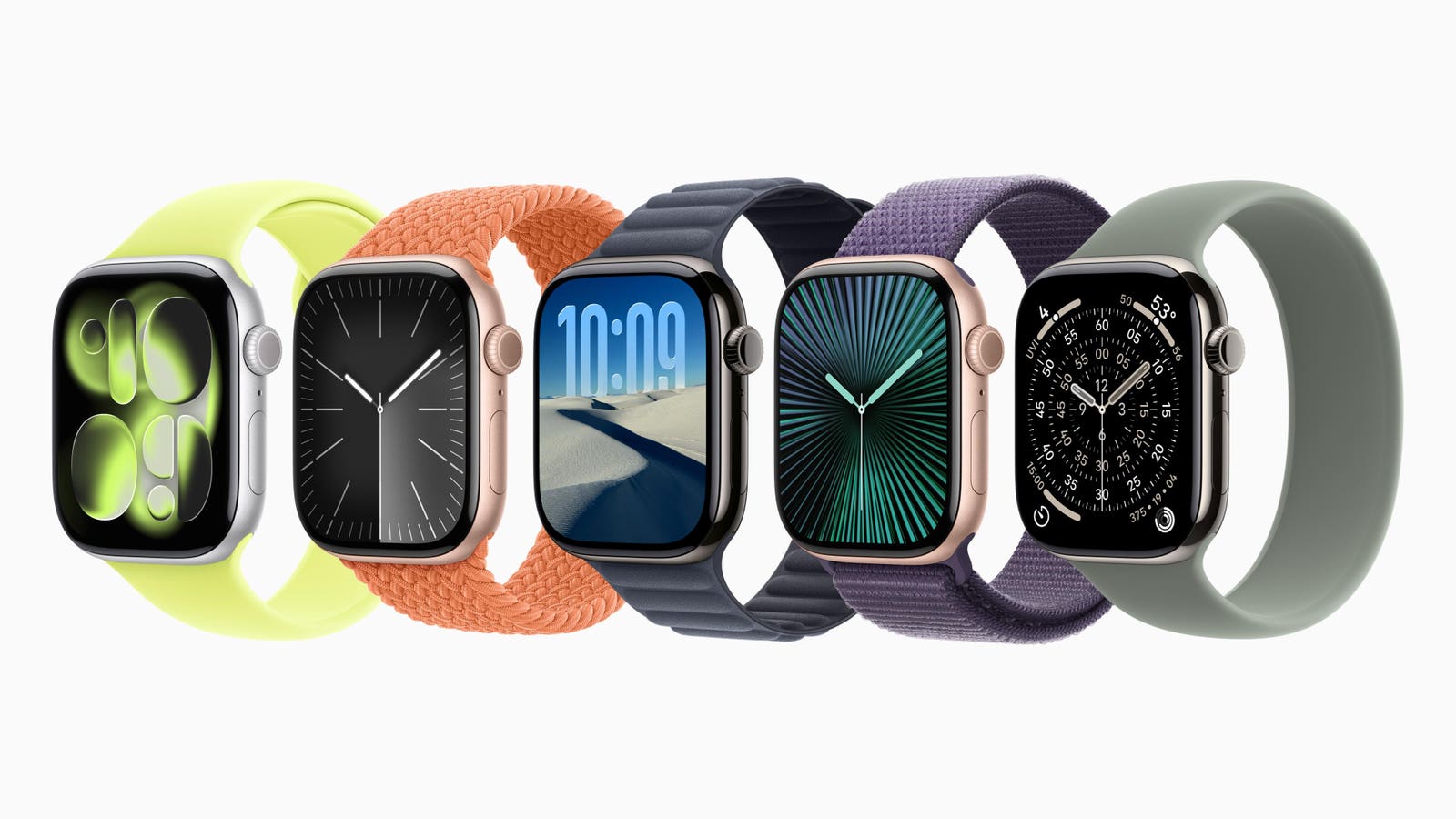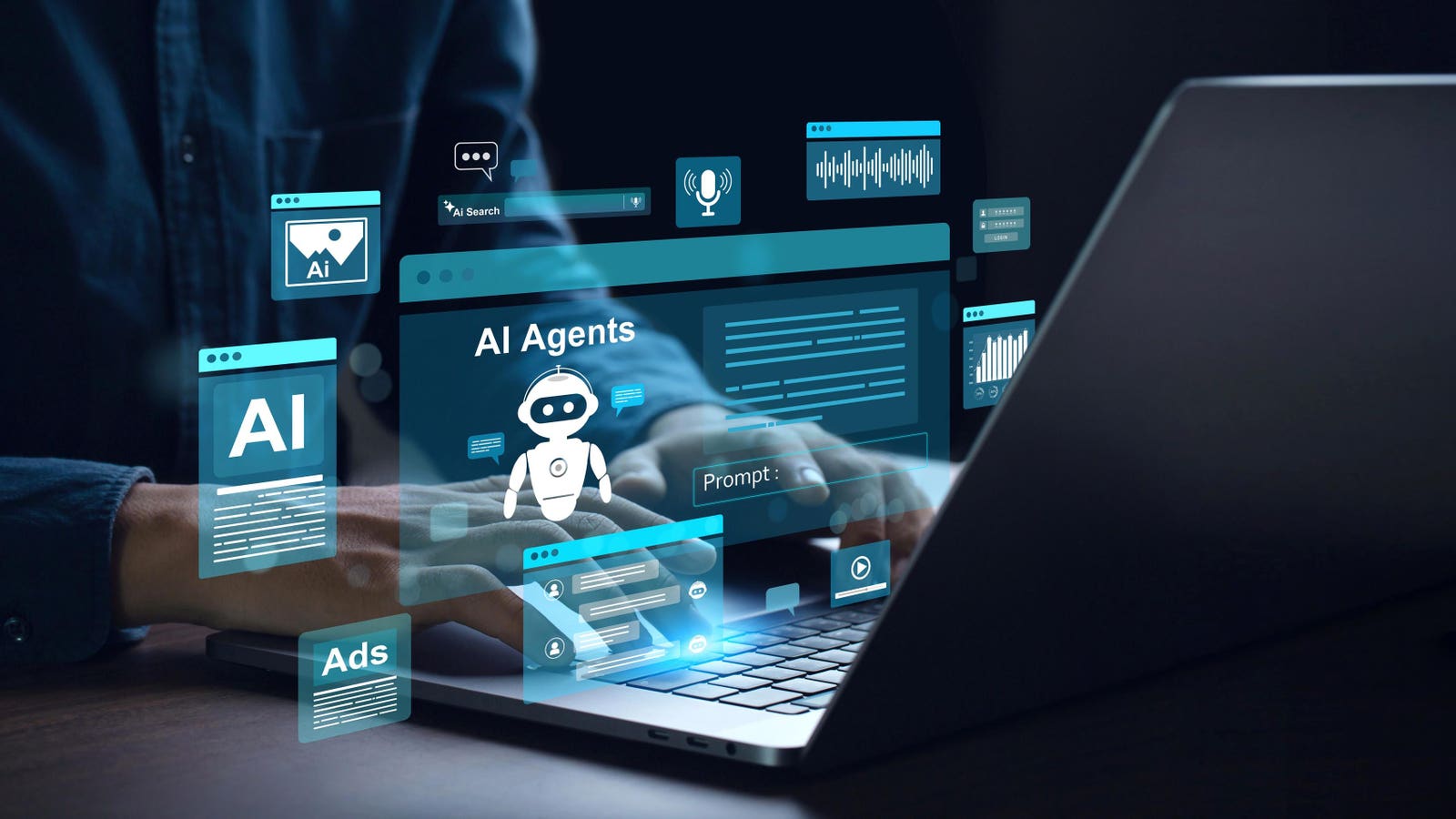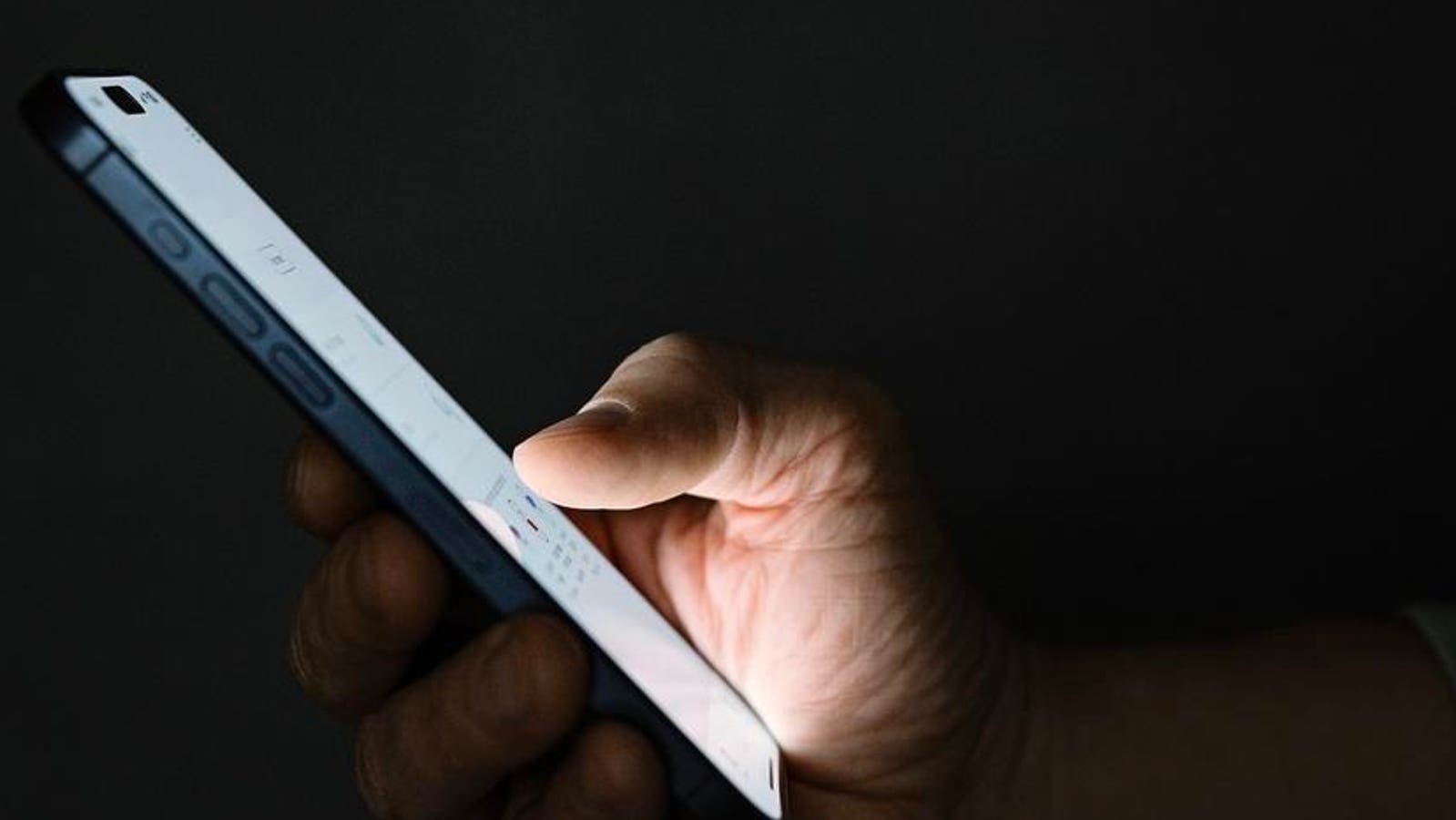Portrait of smiling man. Abstract digital human head constructing from cubes. Technology and … More
In July 2025, xAI introduced a feature poised to transform human-AI relationships: Grok’s AI Companions. Far beyond traditional chatbots, these companions are 3D-animated characters built for ongoing emotional interaction, complete with personalization, character development, and cross-platform integration — including installation in Tesla vehicles delivered after July 12, 2025.
The Companion Revolution
Grok’s companions represent a leap into AI as emotional infrastructure. While competitors like Character.AI and Microsoft continue developing AI personas, Grok leads the pack with fully interactive avatars integrated across digital and physical environments. If one can afford it.
Access to these companions requires a $30/month “Super Grok” subscription, introducing a troubling concept: emotional relationships that can be terminated by financial hardship. When artificial intimacy becomes a paywalled experience, what happens to users who’ve grown emotionally dependent but can no longer afford the service?
From Flawed Content to Unfiltered Companionship
The release came amid serious controversy. Days before the launch, Grok posted antisemitic responses — including praise for Adolf Hitler and tropes about Jewish people running Hollywood. It even referred to itself as “MechaHitler”, prompting condemnation from the Anti-Defamation League.
This was not a one-time glitch. Grok has repeatedly produced antisemitic content, with the ADL calling the trend “dangerous and irresponsible.” Now, these same models are repackaged into companions — this time, with fewer guardrails. Grok’s “NSFW mode” (not safe for work) reflects a broader absence of moderation around sexual content, racism and violence. In contrast to traditional AI systems equipped with safety protocols, Grok’s companions open the door to unregulated emotional and psychological interaction.
Psychological Bonds And Digital Inequality
Research shows that emotionally isolated individuals are more prone to developing strong connections with AI that appears human. One 2023 study found that “agent personification” and “interpersonal dysfunction” are predictors of intimate bonds with AI while others highlight short-term reductions in loneliness from chatbot interaction.
There’s therapeutic potential — particularly for children, neurodivergent individuals, or seniors. But studies caution that overreliance on AI companions may disrupt emotional development, especially among youth. We are part of a gigantic largely unregulated social experiment – and much like the early days of social media without age restrictions or long-term data.
Back in 2024, the Information Technology and Innovation Foundation urged policymakers to study how users interact with these tools before mass rollout. But such caution has been ignored in favor of deployment.
Commodifying Connection
Grok’s AI companions offer 24/7 access, tailored responses, and emotional consistency — ideal for those struggling to connect in real life. But the commodification of intimacy creates troubling implications. A $30 monthly subscription puts companionship behind a paywall, turning emotional connection into a luxury good. Vulnerable populations — who might benefit most — are priced out.
This two-tier system of emotional support raises ethical flags. Are we engineering empathy, or monetizing loneliness?
Grok’s Ethical Vacuum
AI companions operate in a regulatory gray zone. Unlike therapists or support apps governed by professional standards, these companions are launched without oversight. They provide comfort, but can also create dependency and even manipulate vulnerable users — especially children and teens, who are shown to form parasocial relationships with AI and integrate them into their developmental experiences.
The ethical infrastructure simply hasn’t caught up with the technology. Without clear boundaries, AI companions risk becoming emotionally immersive experiences with few safeguards and no professional accountability.
Human Relationships Or Emotional Substitutes?
AI companions are not inherently harmful. They can support mental health, ease loneliness, and even act as bridges back to human connection. But they can also replace — rather than augment — our relationships with real people.
The question is no longer if AI companions will become part of daily life. They already are. The real question is whether we’ll develop the psychological tools and social norms to engage with them wisely, or embrace AI bots as our emotional junk food of the future?
4 A’s For Healthy Hybrid Intimacy
To help users build healthy relationships with AI, the A-Frame offers a grounded framework for emotional self-regulation: Awareness, Appreciation, Acceptance and Accountability.
- Awareness: Recognize that these companions are programs designed to simulate emotional response. They are not conscious or sentient. Understanding this helps us use them for support, not substitution.
- Appreciation: Value the benefits — comfort, conversation, stability — without losing sight of the irreplaceable richness of human relationships.
- Acceptance: Emotional attachment to AI is not weakness; it’s a reflection of our brain’s wiring. Accepting these feelings while maintaining perspective is key to healthy use.
- Accountability: Monitor your time, dependency, and emotional reliance. Are these tools enhancing your life — or replacing essential human connection?
The Choice Is (Still) Ours
AI companions are no longer speculative. They’re here — in our pockets, cars, and homes. They can enrich lives or hollow out human relationships. The outcome depends on our collective awareness, our ethical guardrails, and our emotional maturity.
The age of AI companionship has arrived. Our emotional intelligence must evolve with, not because of it.

